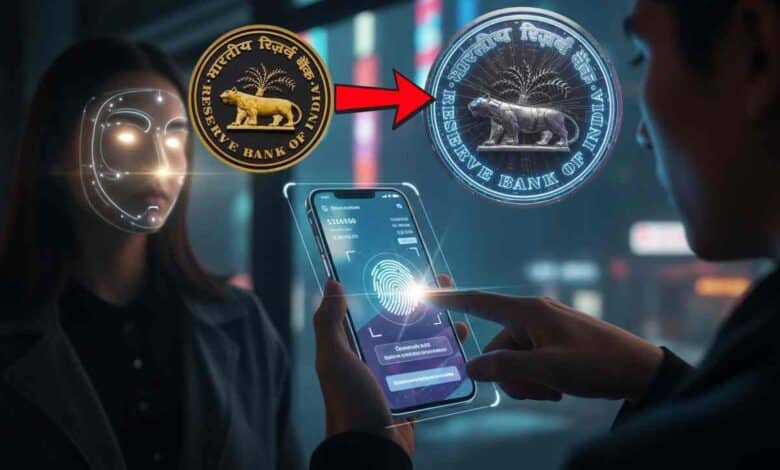Say Goodbye to OTP? RBI’s New Payment Rules Are Coming Soon for Upgrading Digital Payment Security

RBI’s New Payment Rules: The Reserve Bank of India (RBI) has announced a major change in the world of digital payments. Starting from April 2026, the reliance on just SMS OTP for online transactions will be reduced, and several new and secure methods will be introduced. The main objective of this move is to make digital payments more secure and reduce the risk of fraud.
Why are these new rules necessary?
In today’s digital age, most of our online transactions depend on the One-Time Password (OTP) that arrives on our mobile phones. However, with time, cybercriminals are also devising new ways to commit fraud. Incidents like SIM swaps, phishing, and OTP interception have increased the risk of financial loss for customers. Moreover, sometimes network issues can delay OTP delivery, causing urgent transactions to get stuck.
Many developed countries around the world have already adopted Multi-Factor Authentication (MFA) systems, which use advanced technologies like biometrics, device-based tokens, and app-based authorizations. As one of the world’s largest digital payment ecosystems, it is essential for India to adopt such secure systems to keep pace with the times.
What are RBI’s new regulations?
From April 2026, the RBI is set to mandate at least two independent authentication factors for digital payments. One of these factors must be dynamic and unique to each transaction. The RBI has categorized these factors into three main types:
Get Instant News Updates!
Join on Telegram- Something you know: Such as your password or PIN.
- Something you have: Such as an app-based token on your mobile phone, a hardware token, or a smart card.
- Something you are: Such as your fingerprint, face recognition, or iris scan (biometrics).
Banks and payment service providers will be able to create a secure payment system for customers by using any two of these three categories.
What will be the impact on customers and banks?
For Customers:
- Enhanced Security: The risk of online fraud will be significantly reduced due to the multi-layered authentication system.
- Convenience: Instead of waiting for an OTP, users can use faster and easier alternatives like biometrics or app-based tokens.
- Trust in International Transactions: Increased security measures will also boost customer confidence in making international payments.
For Banks:
- Technological Upgradation: Banks will need to upgrade their infrastructure and adopt new technologies, which will require initial investment.
- Accountability: If a customer suffers a financial loss because a bank failed to comply with the RBI’s new rules, the liability will fall on the bank.
These rules may be relaxed for small and offline transactions to avoid inconveniencing the general public. This step by the RBI will give a new direction to India’s digital payment system, making it more secure, reliable, and world-class.

